Youbu in Lanxi, along with Wuzhen in Tongxiang, Nanxun in Huzhou, and Fotang in Yiwu, is known as one of the “Four Thousand-Year-Old Towns of Zhejiang.” The town is renowned for its cultural activities and numerous historical relics. Dragon dances, lantern festivals, lion dances, and other events take place in every village. Most ancestral halls, temples, archways, and drum towers have been well-preserved. On Youbu Creek, which runs through the town, there are five bridges built during the Qing Dynasty: “Taiping Bridge,” “Yongan Bridge,” “Yongji Bridge,” “Yongfu Bridge,” and “Laoxi Bridge,” collectively known as the “Five Horses Returning to the Stable.” These bridges are a remarkable sight with a long history and an old-world charm.
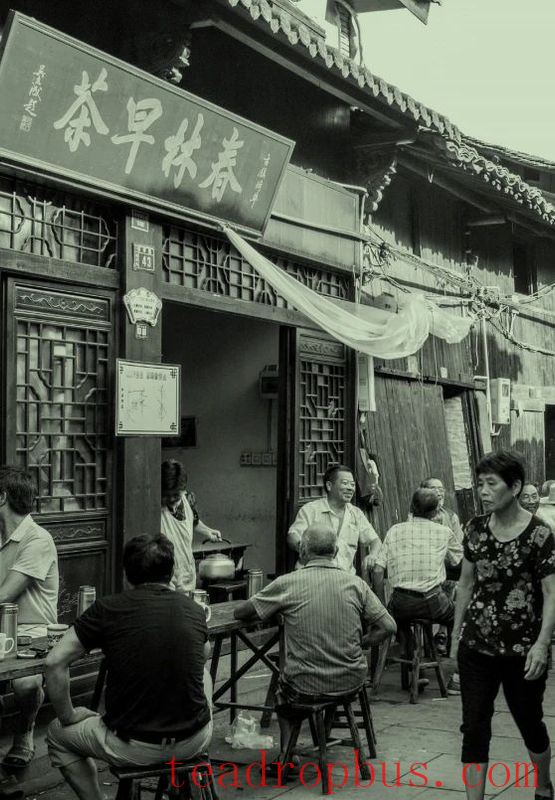
Located in the northern part of the Jinqiu Basin at an altitude of 31.79 meters, the northwest of Youbu consists of loess hills, with higher terrain and small fields between the hills. Youbu is a commercial port downstream of Longyou County, hence its name “Youbu.” Based on unearthed artifacts and ancient sites, Youbu became a port at the latest by the time Lanxi County was established during the Eastern Jin Dynasty. It was already a “town” during the Wanli period of the Ming Dynasty, with many changes in administrative divisions since then.
In 1998, it was designated as a pilot town for comprehensive reform of small towns in Zhejiang Province, and in 2000, it was listed as a central town in Zhejiang. As one of the four thousand-year-old towns in Zhejiang, Youbu is known as the “First Port Upstream of the Qiantang River.” In recent years, a “Morning Tea Street of Jiangnan” has made Youbu a popular destination. The locals continue to explore morning Tea culture, injecting new vitality into the ancient town and forging a path toward shared prosperity.
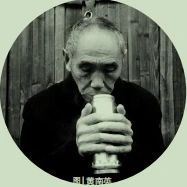
“Now we're busy with both morning and evening teas, with customers coming in continuously from early morning until late at night. During holidays like May Day and National Day, we sell over 400 Ji Zi Guo (a local delicacy) that pair perfectly with morning tea,” says Zhu Lianqing, a representative inheritor of the intangible cultural heritage of Lanxi's Ji Zi Guo. Every weekend and holiday, the staff starts preparing as early as 4 a.m., working non-stop until closing at 10 p.m.
Indeed, to uncover the essence of this ancient town, one must start by exploring its morning tea culture. The most bustling morning tea street in Youbu lies between Yongan Bridge and Taiping Bridge. Characteristic morning teas are an integral part of life in Youbu. At dawn, when the first light of day appears, people from surrounding areas gather at the various teahouses by the docks to exchange information, socialize, and seek business opportunities—a tradition that has continued to this day.
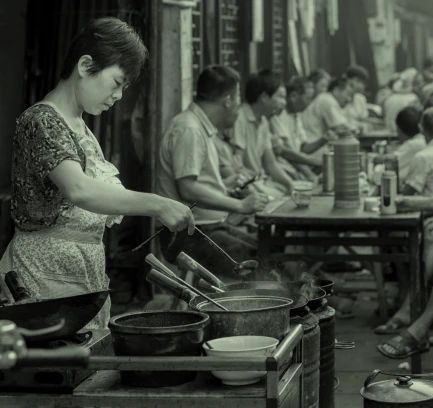
Before 4 a.m. every day, the teahouses on the old street begin to fire up their stoves and boil water, instantly bringing the narrow street to life. Steam rises and calls fill the air, while tables are neatly arranged outside the doors. Regular patrons from nearby towns and villages follow their usual routine, finding a bench under an eave, brewing a cup of clear tea, and adding a side of fried dough sticks sandwiched in a baked bun, which serves as the “ingredient” for the morning. Some also order local snacks such as Ji Zi Guo, Rou Chen Zi, scallion pancakes, stir-fried rice noodles, pan-fried buns, steamed buns, small wontons, salty glutinous rice balls, noodles, zongzi, scallion flower buns, sponge cakes, and freshly baked crispy buns.
The main “ingredient” of each day is discussing national affairs, chatting about countryside anecdotes, sorting out family matters, all done leisurely and unhurriedly, with conversations lasting half the day and patrons sitting for the entire morning. Chatting, drinking tea, and savoring food is a delightful way of life. Nowadays, teahouses abound in Youbu, each with its own unique charm, attracting a steady stream of tourists who come to experience the warmth of human life. This area has become a popular street for foodies, earning the additional title of “First Morning Tea Street of Jiangnan.”
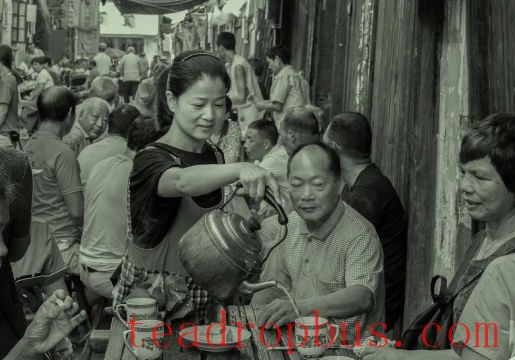
Here, everything is slow-paced, reminiscent of the old times when life moved slowly, preserved in the morning teas of Youbu; the unique lifestyle of the tea patrons lingers in the pervasive aroma of tea.
Youbu morning tea is a folk dining custom. While not as famous as Cantonese morning tea, it originated earlier than its Cantonese counterpart.
This morning tea tradition stems from over a thousand years of dock culture. Since the Eastern Jin Dynasty, when Youbu became a port, shops lined the streets, boats came and went, and merchants gathered. Connected to the Qiantang River system, it served as a hub for land and water transportation and a center for goods distribution, becoming an important commercial port. The tradition of drinking tea has been passed down for over a thousand years. In the past, the patrons were merchants, but now they are mostly local farmers, especially older folks who wake up early to drink tea and order some tea snacks for breakfast, finishing their tea around 6 or 7 a.m. before heading to work in the fields.
Those without pressing matters arrive later, sitting around a table with a few old friends, ordering some tea snacks, and chatting away the day.
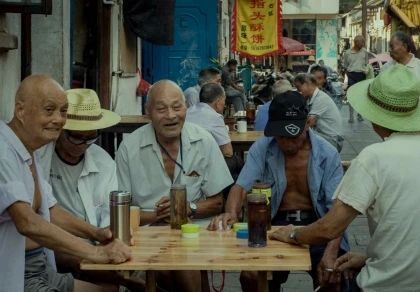
Youbu has a rich historical and cultural heritage. Alongside being a commercial center, it has produced many notable figures. The Tang Dynasty monk Guan Xiu was born in Youbu. Guan Xiu (832–912 AD), whose secular surname was Jiang, was from Lanxi, Zhejiang Province, and his courtesy name was Deyin. He was a painter and poet of the late Tang and Five Dynasties period, residing in the former state of Qian Shu.
Guan Xiu became a monk at the age of seven at An Temple, reading a thousand characters of scripture daily with a photographic memory. During the Tianfu period of the Tang Dynasty, he entered Shu and was conferred the title “Zen Moon Master” by King Wang Jian of the former state of Qian Shu, who bestowed upon him purple robes. Throughout his life, Guan Xiu lived a strict and ascetic lifestyle, traveling extensively.
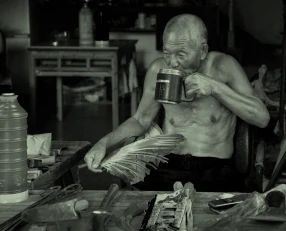
He was a talented poet and calligrapher, and particularly skilled in painting, especially his depictions of arhats, which were rustic yet extraordinary, earning him a high reputation in the history of Chinese painting. Guan Xiu often returned home, even proclaiming that “ten thousand miles of green mountains are insufficient,” and in middle age, he built Shi Bi Temple in the Xunshui region.
Not far from the old street is Guan Xiu's ancestral temple. Walking into the temple, I listened to his story and marveled at his ability to read a thousand characters of scripture daily with a photographic memory. The Ming Dynasty scholar Hu Zhenheng commented on Guan Xiu's poetry: “His thoughts and lines are as if they fell from the sky; unfortunately, they can suddenly turn vulgar and angry, making them unbearable.” Tang poetry is the pinnacle of Chinese poetry, and Guan Xiu indeed stands as a peak within it.
Many people visited Shi Bi